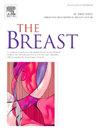Chemotherapy in older patients with early breast cancer
IF 5.7
2区 医学
Q1 OBSTETRICS & GYNECOLOGY
引用次数: 0
Abstract
The incidence of breast cancer increases with age. Particularly in ageing societies, breast cancer has a significant impact on both the older patient and the healthcare system. In older patients with early breast cancer, there is a complex interplay between (i) tumor biology, (ii) risk of recurrence, (iii) comorbidities, (iv) frailty, (v) life expectancy and (vi) patient expectations and preferences. Our treatment guidelines are often based on large meta-analyses that have shown that (neo)adjuvant chemotherapy improves the survival rate in early breast cancer in general. This is particularly important in triple-negative and HER2-positive breast cancer, but hormone receptor (HR)-positive, HER2-negative patients with a higher risk of recurrence also benefit from chemotherapy. However, most studies included younger and carefully selected patients. Since there is a positive correlation between age and estrogen receptor status, as well as between age and the number of concomitant diseases and the tolerability of chemotherapy, it is of great importance to evaluate the effects of additional (neo)adjuvant chemotherapy, especially in older patients with early-stage breast cancer. There are only a few studies in which only older patients with early breast cancer were included. On the whole, they show that older patients with HR-positive, HER2-negative tumors hardly benefit from chemotherapy in addition to endocrine therapy. In these patients, additional chemotherapy should be considered critically when weighing up the potential benefits and harms. However, this critical evaluation should not be confused with abandoning standard chemotherapy when it is feasible and clinically indicated based on geriatric assessment, risk assessment, and patient preference. The aim of our narrative review is to provide a concise overview of the evidence on chemotherapy in older women with breast cancer and place it in the context of geriatric assessment and risk evaluation in older HR-positive, HER2-negative patients with early breast cancer. This in turn should help to critically weigh up the risks and benefits of chemotherapy for the individual older patient with early-stage breast cancer, which should ultimately lead to more individualized and at the same time more evidence-based treatment recommendations that take into account the complex interplay of different and sometimes contradictory patient- and tumor-specific factors.
老年早期乳腺癌患者的化疗
乳腺癌的发病率随着年龄的增长而增加。特别是在老龄化社会,乳腺癌对老年患者和医疗系统都有重大影响。对于患有早期乳腺癌的老年患者来说,(i) 肿瘤生物学特性、(ii) 复发风险、(iii) 合并症、(iv) 虚弱程度、(v) 预期寿命以及 (vi) 患者的期望和偏好之间存在着复杂的相互作用。我们的治疗指南通常以大型荟萃分析为基础,这些分析表明(新)辅助化疗总体上提高了早期乳腺癌患者的生存率。这对三阴性和 HER2 阳性乳腺癌患者尤为重要,但激素受体(HR)阳性、HER2 阴性且复发风险较高的患者也能从化疗中获益。不过,大多数研究都纳入了经过严格筛选的年轻患者。由于年龄与雌激素受体状态、年龄与伴随疾病的数量以及化疗的耐受性之间存在正相关,因此评估额外(新)辅助化疗的效果,尤其是对年龄较大的早期乳腺癌患者的化疗效果具有重要意义。目前只有少数几项研究只纳入了老年早期乳腺癌患者。总体而言,这些研究表明,HR 阳性、HER2 阴性的老年患者很难从内分泌治疗基础上的化疗中获益。对于这些患者,在权衡潜在的利弊时,应慎重考虑额外的化疗。然而,这种严格的评估不应与放弃标准化疗混为一谈,当化疗可行且有临床指征时,应根据老年病学评估、风险评估和患者偏好进行评估。我们的叙述性综述旨在简要概述老年女性乳腺癌患者化疗的证据,并将其置于老年病学评估和早期乳腺癌HR阳性、HER2阴性老年患者风险评估的背景下。这反过来将有助于严格权衡化疗对老年早期乳腺癌患者的风险和益处,最终提出更个体化、更循证的治疗建议,同时考虑到不同的、有时是相互矛盾的患者和肿瘤特异性因素的复杂相互作用。
本文章由计算机程序翻译,如有差异,请以英文原文为准。
求助全文
约1分钟内获得全文
求助全文
来源期刊

Breast
医学-妇产科学
CiteScore
8.70
自引率
2.60%
发文量
165
审稿时长
59 days
期刊介绍:
The Breast is an international, multidisciplinary journal for researchers and clinicians, which focuses on translational and clinical research for the advancement of breast cancer prevention, diagnosis and treatment of all stages.
 求助内容:
求助内容: 应助结果提醒方式:
应助结果提醒方式:


